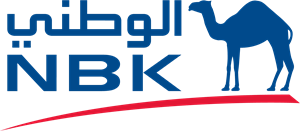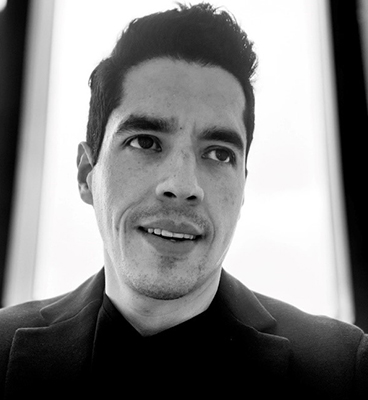
Healthy Work, Healthy Life: Fostering a Balanced Company Culture with Patience and Consistency
What are the key factors in creating a supportive and engaging work environment?
- On: August 14, 2024


Serkan Deveci
How do you manage engagement for employees working in high-stress roles to prevent burnout?
While many companies have wellbeing programmes that are created to tackle stress after it occurs, real impact is achieved when genuine care for employee engagement and wellbeing is embedded in the organisation’s culture.
I believe in a balanced life, but not just in the traditional sense of work-life balance, which is a complex concept. We spend more than half of our day engaged with work—whether actively performing tasks or simply thinking about them, both of which consume a lot of energy. Most wellbeing interventions and engagement initiatives focus on separating work from personal life. But the gist is that for many of us, work-life balance is not about strict separation.
In the working population, there are, simply put, segregators and integrators. Segregators strictly separate work from other parts of their lives. Out of working hours, they don’t check work emails or take work calls. Integrators, on the other hand, blend work and personal life, with blurred lines that overlap and interconnect.
Companies should be able to engage with all employees (segregators, integrators, and all). That’s only possible with a company culture that puts people first (not just with wellbeing interventions). In my research as an organisational psychologist and my practical experience as a former sales leader and an HR executive, I’ve seen that sustainable employee engagement and wellbeing are possible only when the organisation and leaders are genuinely committed to it. It’s an interconnection between the organisation, the leaders, the work environment, and the employees themselves.
What are the specific roles that each of these agents play in this engagement?
First of all, leaders have the opportunity to personally role model healthy behaviours and facilitate a culture that engenders support through open dialogue, respect, and recognition for performance. This leads to better understanding and common ground. By doing so, they set explicit and implicit permissions for individuals to take steps toward greater wellbeing.
Equally important is the work environment. An unmanageable and increased workload can leave employees frazzled and feeling like they aren’t achieving anything. In addition, a lack of clear expectations not only undermines performance and results within a team but also negatively impacts engagement, relationships and teamwork. The result is inevitably lower wellbeing, and, ultimately, burnout.
This brings me to work relationships and social connections. As humans, we crave social connection in every environment we become accustomed to, so it’s only understandable that this is important within the workplace—a place where we spend 40 or more hours a week. A lack of interpersonal relationships can negatively impact our health, our ability to adjust, and our overall wellbeing. Those who maintain healthy workplace relationships tend to be more in tune with what’s going on and are typically more engaged with their work than others.
Finally, we shouldn’t forget about internal drivers: self-care and health. Self-care is something many people struggle to prioritise. It is a crucial part of looking after ourselves, as well as others. When we practise self-care, we produce positive feelings, which boost motivation and self-esteem, leaving us with increased energy to support ourselves, as well as our team and peers. While small amounts of stress are a healthy way to motivate us to get a task done, constant stress and anxiety can have an adverse effect on our mental wellbeing and physical health.
As a leader, how do you handle situations where an employee feels their role lacks purpose?
Let’s start with an important clarification on the term ‘purpose,’ as it can be quite controversial and trigger many arguments. When we hear ‘purpose,’ our brains often think about vision and mission. However, the purpose isn’t just about a fancy mission statement plastered on the wall. It’s about demonstrating, from the very first interaction with a potential candidate and continuing with our talent, what their individual contribution will be and how their work will have an impact—whether it’s on customers, the community, the organisation, the world, or even themselves.
Purpose does not have to be altruistic. People have an inherent cognitive need for belonging and meaning. Purpose fulfils this need by providing direction, perspective and a sense of significance in both professional and personal contexts. So, purpose is the ‘why’ at both a company and an individual level, and driving engagement through purpose involves creating this alignment between the two.
When talent feels a loss of a sense of purpose, which can have a negative effect on engagement, I always advise the leaders I work with to focus on the root causes before trying to address the symptoms or the outcome. Start by investigating a few key questions.
For example, do employees feel connected to the company’s mission, or is there an excessive focus on workload and targets? Reminding employees of the company’s mission and why their work matters helps counteract negativity and refocuses on the sense of purpose that motivates people. Do employees feel their daily tasks connect to a bigger purpose? Do they understand the impact of their work on their own growth and development, the team, and the company as a whole? Is the “why” behind the work demands and how it connects to employees’ work clearly explained?
All in all, it requires a strategic approach to (re)clarify the purpose for talent in their roles. Leaders should be aware that this may not be fixed overnight. Be persistent, patient, consistent and committed!
In search for ways to cultivate a culture that genuinely cares for employee wellbeing and engagement? Serkan has more to share with you.
He will present an insightful case study “SPARK the Engagement” at our 13th Annual HR Excellence Summit, on 6 – 7 November, in Barcelona.
Join us to strike up conversations that will surely facilitate your success!
Short Speaker BIO:
Serkan is a senior HR leader at Google with 15+ years of experience overseeing human capital planning, strategic talent management, and leading culture and employee engagement strategy.
He is also the founder of Spark HR Consulting, a firm that partners with C-level executives, HR leaders, and teams worldwide to enhance leadership effectiveness and drive change management.
Passionate about startups and experienced in driving growth for smaller organisations, Spark HR Consulting also works with startups on HR strategy and planning, including performance management, compensation planning, and talent management.
Serkan is a globally recognised keynote speaker, delivering engaging talks on future of work, leadership effectiveness, employee engagement, and change management.
Prior to his role in HR and People Strategy, Serkan held a prominent sales leadership position, leading a complex, large-scale business and a substantial sales team. He also gained valuable experience as a marketing manager at NBG Finansbank and Danone Baby Nutrition.
Serkan holds a BA in Economics from Galatasaray University (Istanbul) and an MSc in Neuroscience and Psychology from King’s College London. He is currently pursuing a PhD in Psychology at Warwick, focusing his research on leadership and its effects on employee and organisational outcomes.
With a unique blend of business acumen, sales leadership, and HR expertise, Serkan is dedicated to creating engaging employee experiences, cultivating a positive culture, and driving organisational success.





